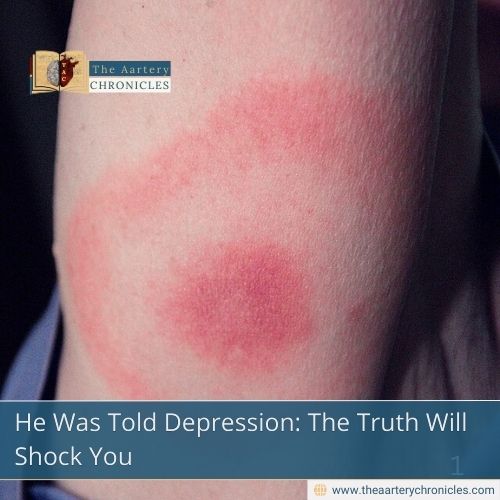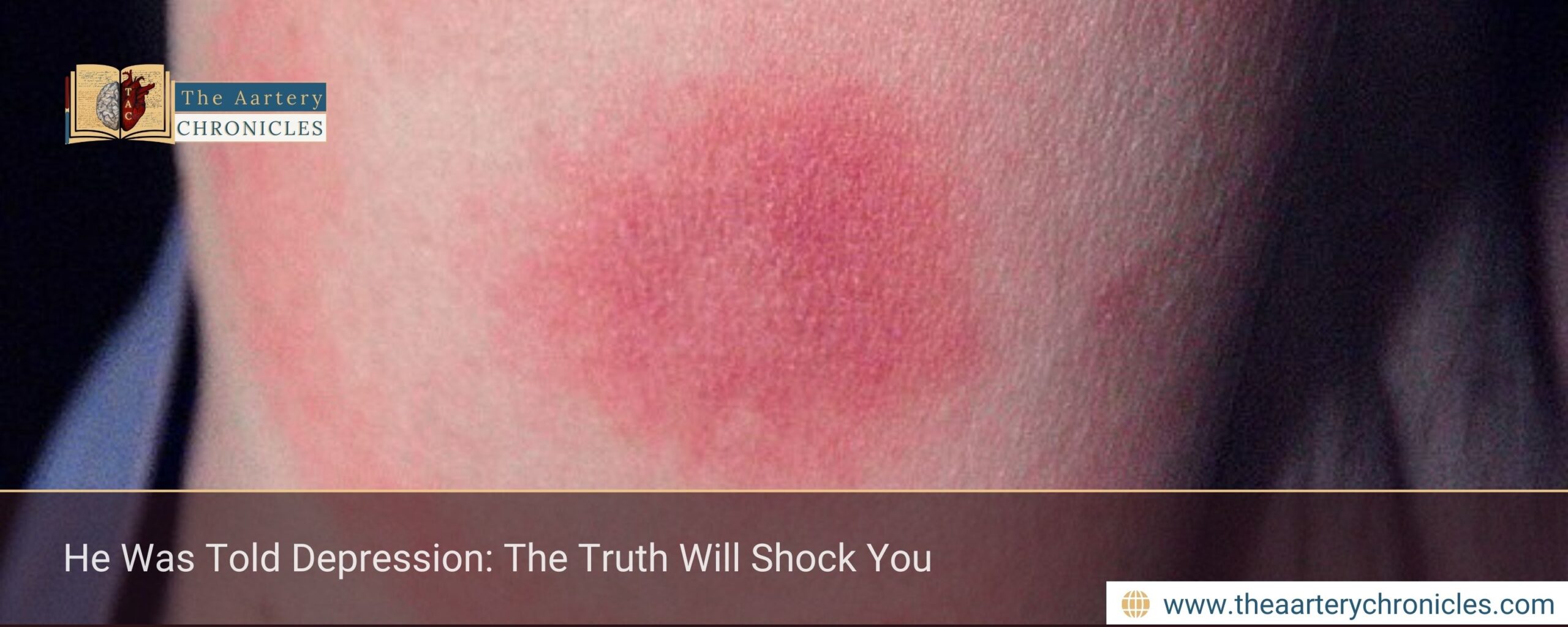

He Was Told Depression: The Truth Will Shock You
For over two decades, French osteopath Frédéric Roscop battled unexplained health problems that were repeatedly dismissed as depression or hypochondria. Only at the age of 35 did he finally receive the correct diagnosis, chronic Lyme disease, a bacterial infection spread by tick bites. His story highlights how easily this illness can be overlooked, and why early detection is crucial.
Early Childhood in Dordogne: Missed Warning Signs
Frédéric grew up in Dordogne, France, spending much of his childhood outdoors on farms. These adventures exposed him to frequent tick bites. At the time, awareness of Lyme disease was almost nonexistent. Instead of removing ticks properly and prescribing antibiotics, local practice involved bathing him in iron water.
Soon, he developed round red rashes, now recognised as the “bullseye rash” (erythema migrans), a classic sign of Lyme infection. But in the 1970s, doctors dismissed them as allergic reactions. Without proper treatment, the infection quietly spread through his body.
Even as a child, Frédéric noticed health issues that didn’t add up. He struggled with fatigue, delayed puberty, weight gain, and hormonal imbalances. His digestive system was often upset, and his energy levels fluctuated between hyperactivity and exhaustion symptoms, sometimes mistaken for ADHD.
By age eight, he was already seeing a psychotherapist, but since the root cause was bacterial, counseling and exercise could only provide temporary relief.
Worsening Symptoms Through Adolescence
After a nose surgery at 16, his immune system weakened, allowing the infection to spread further. Over the next few years, he developed:
- Severe joint and muscle pain
- Extreme tiredness
- Brain fog and memory issues
- Emotional ups and downs
- Gut problems and hair loss
- Inflammation of the heart (Lyme carditis)
- Sexual health problems
Despite these debilitating symptoms, doctors continued to label him with psychological conditions rather than investigating physical causes.
Misdiagnosis and Desperate Attempts at Treatment
In his late twenties, following the death of his father, Frédéric suffered his first major panic attack. Although he was already a trained osteopath in London, even his medical background didn’t help him uncover the truth.
Over the years, he experimented with everything from homoeopathy and Chinese herbs to saunas and supplements. Nothing worked, and each failed attempt deepened his frustration and financial stress.
Finally: A Correct Diagnosis of Chronic Lyme Disease
At 35, while treating a young patient with brain inflammation caused by Lyme, Frédéric recognised the same symptoms in himself. He arranged a private blood test in Germany, which confirmed chronic Lyme disease with seven co-infections.
Because of strict testing regulations in the UK, his general practitioner could not offer much support. He was forced to seek private care at a specialist clinic.
The Long Road to Recovery
Treating late-stage Lyme disease is complex. Initial oral antibiotics triggered a Herxheimer reaction, a temporary worsening of symptoms as bacteria died off. His liver, already damaged, struggled to cope, and he required intravenous antibiotics.
Recovery was slow, painful, and costly. However, by combining Western medicine with nutritional therapy, detox support, and complementary treatments, Frédéric gradually regained his health. Drawing from his experience, he later created “Liquid Intelligence”, a supplement designed to support immunity and detoxification.
Life After Lyme: Rebuilding Health and Purpose
Today, Frédéric has been free of major symptoms for seven years. But recovery wasn’t just physical; it also involved relearning how to trust his body and live without constant illness.
His journey inspired him to guide others facing chronic Lyme disease and other poorly understood conditions. He now shares his knowledge with patients and families who feel lost in a cycle of misdiagnosis.
Why This Story Matters
Frédéric’s case underlines how chronic Lyme disease can remain undiagnosed for years, often mistaken for psychological disorders. Although public awareness has improved, thanks in part to celebrities like Bella Hadid and Justin Bieber, challenges in diagnosis and treatment remain.
Early recognition of symptoms, accurate testing, and a more integrative approach to treatment could prevent many from enduring decades of unnecessary suffering.
Source: Inputs from various media Sources
I’m a pharmacist with a strong background in health sciences. I hold a BSc from Delhi University and a pharmacy degree from PDM University. I write articles and daily health news while interviewing doctors to bring you the latest insights. In my free time, you’ll find me at the gym or lost in a sci-fi novel.
- Priya Bairagi
- Health News and Updates,People Forum
- 27 September 2025
- 15:00








